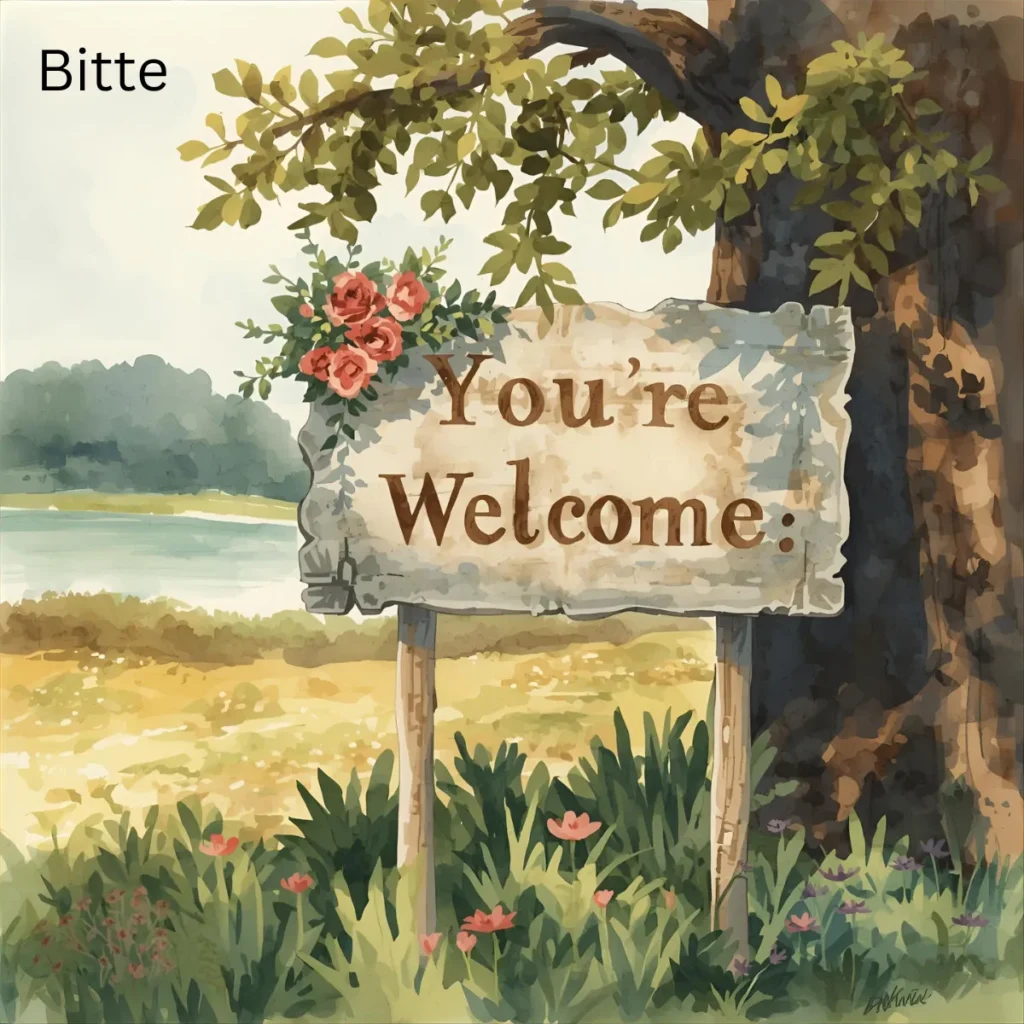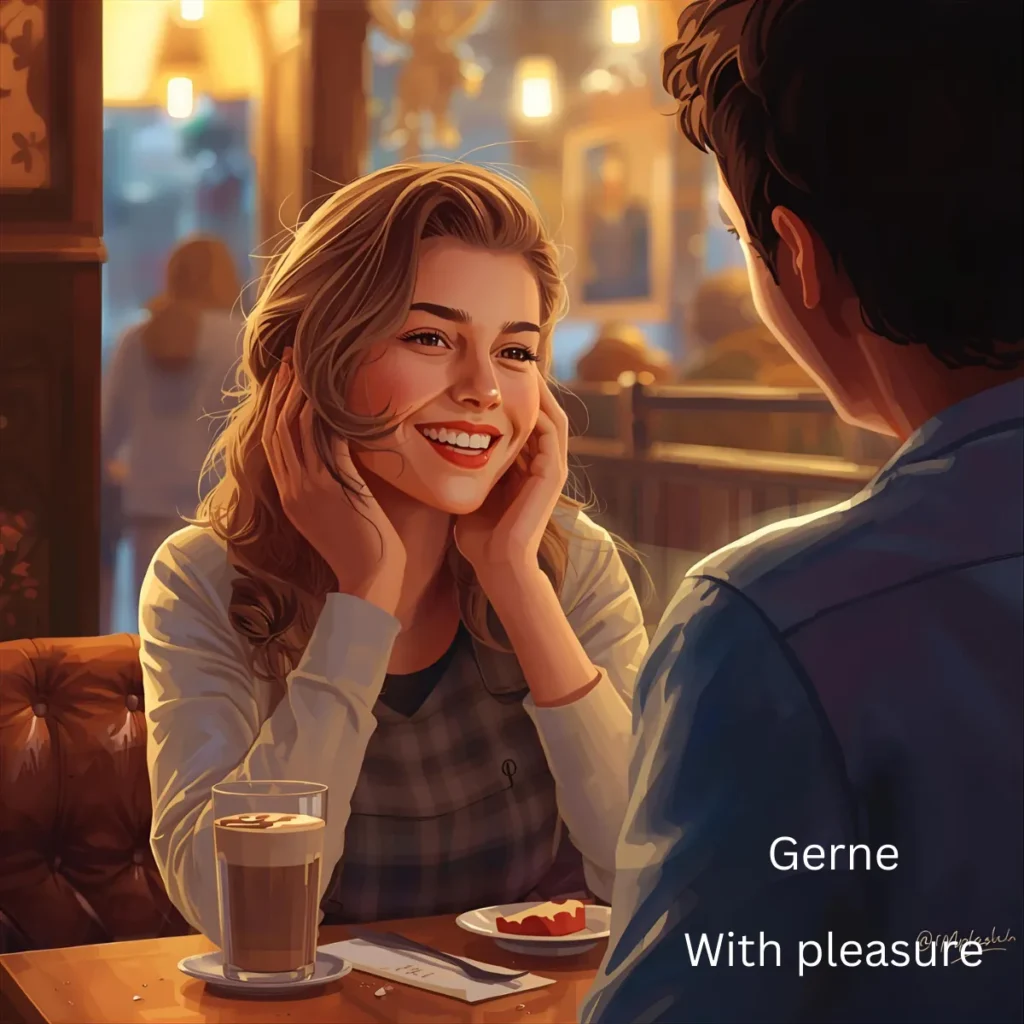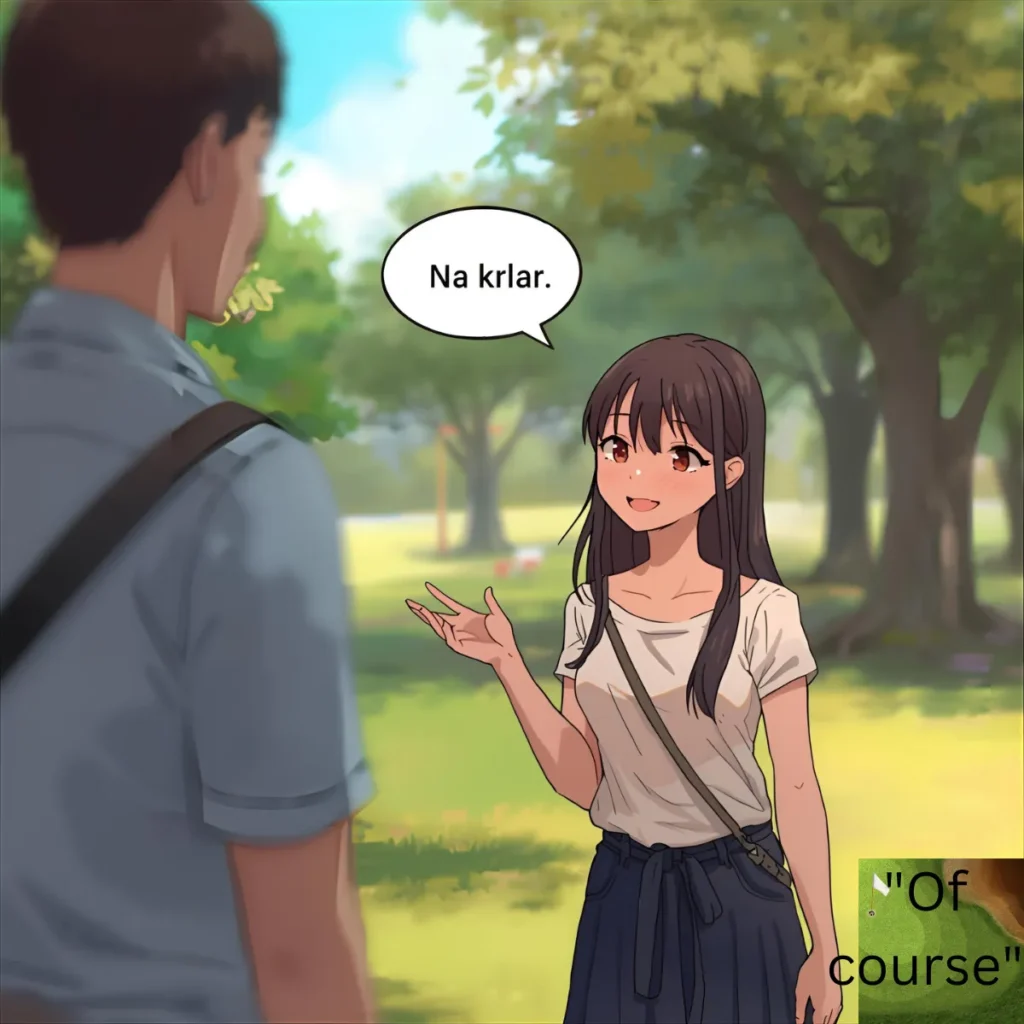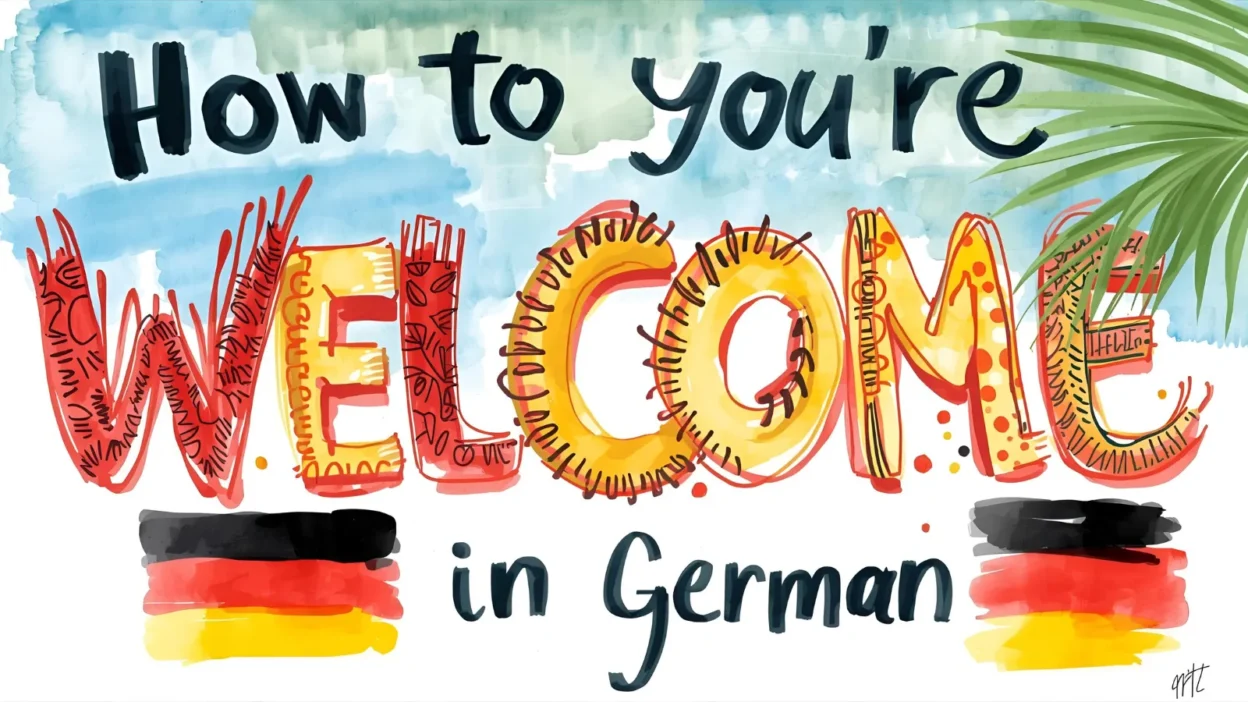Have you ever wondered how to say you’re welcome in German? Whether someone thanks you after a favor, a gift, or a simple act of kindness, knowing the right response in German makes your conversation smooth and polite. In German, there are a few common ways to reply, and each fits slightly different situations. In this guide, we will show you the easiest and most natural ways to say “you’re welcome” in German so you can speak confidently and politely in everyday conversations.
How to Say You’re Welcome in German is an essential part of polite conversations. The most common response is “Bitte”, which directly translates to “please” but also works as you’re welcome.
In more casual settings, you might hear “Gern geschehen” or “Kein Problem,” both expressing friendliness and ease. Learning these variations helps you respond naturally and respectfully after someone thanks you in German.
You’re Welcome in German
15 Phrases to Say You’re Welcome in German
| # | German Phrase | English Meaning |
|---|---|---|
| 1 | Bitte | You’re welcome |
| 2 | Gern geschehen | Gladly done / You’re welcome |
| 3 | Kein Problem | No problem |
| 4 | Bitte schön | You’re very welcome |
| 5 | Bitte sehr | You’re very welcome |
| 6 | Schon gut | It’s all good |
| 7 | Kein Ding | No big deal (casual) |
| 8 | Nichts zu danken | Nothing to thank me for |
| 9 | Immer gerne | Always gladly |
| 10 | Sehr gerne | With pleasure / Gladly |
| 11 | Keine Ursache | No cause / Don’t mention it |
| 12 | Aber gern | But of course / Gladly |
| 13 | Jederzeit | Anytime |
| 14 | Dafür nicht | Not for that (don’t mention it) |
| 15 | Alles gut | All good |
In this guide, you’ll learn 15 ways to say you’re welcome in German, complete with real-life dialogue and cultural notes to help you sound confident and authentic.
1. Bitte – “You’re welcome”

Origin:
Literally means “please,” but in context, bitte also means “you’re welcome.” It’s the most universal and flexible reply.
Example:
👤 A: Danke für deine Hilfe!
👤 B: Bitte!
Use: Very common, neutral, and suitable in almost every situation.
2. Gern geschehen – “Gladly done”
Origin:
A more polite and gracious way to say you were happy to help. Literally translates to “happily happened.”
Example:
👤 A: Vielen Dank für die Information!
👤 B: Gern geschehen.
Use: Slightly more formal or sincere than bitte.
3. Gerne or Gern – “With pleasure”

Origin:
Shortened from Gern geschehen, this phrase is casual and warm. “Gerne” is preferred in southern Germany; “Gern” in the north.
Example:
👤 A: Danke fürs Mitnehmen!
👤 B: Gern!
Use: Friendly and informal.
4. Kein Problem – “No problem”
Origin: Borrowed directly from English and common in everyday conversation.
Example:
👤 A: Danke, dass du mir geholfen hast.
👤 B: Kein Problem!
Use: Very informal; best among friends or equals.
5. Keine Ursache – “No cause”

Origin: Literally “no cause/reason.” Used to downplay the need for thanks, especially in older or more polite usage.
Example:
👤 A: Danke für Ihre Unterstützung.
👤 B: Keine Ursache.
Use: Slightly formal or polite; good in workplace or polite social settings.
6. Dafür nicht – “Don’t mention it”
Origin: Roughly means “not for that,” implying the help wasn’t a big deal. Older and slightly formal, though still heard.
Example:
👤 A: Vielen Dank!
👤 B: Dafür nicht.
Use: Modest or traditional tone; older generation prefers this.
7. Aber gerne doch! – “But of course!”
Origin: Adds warmth and enthusiasm with a friendly tone; sounds like you’re happy to help.
Example:
👤 A: Danke, dass du gewartet hast.
👤 B: Aber gerne doch!
Use: Very friendly and cheerful.
8. Mit Vergnügen – “With pleasure”
Origin: More formal or poetic; literally “with enjoyment.” Common in customer service or polite interactions.
Example:
👤 A: Danke für Ihre Hilfe.
👤 B: Mit Vergnügen.
Use: Polite and service-oriented.
9. Jederzeit – “Anytime”
Origin: Literally means “at any time.” Shows you’re always willing to help.
Example:
👤 A: Danke für das Angebot!
👤 B: Jederzeit.
Use: Friendly and confident.
10. Na klar – “Of course”

Origin: From Natürlich klar, it’s very colloquial and means “obviously” or “sure!”
Example:
👤 A: Danke, dass du das übernommen hast!
👤 B: Na klar!
Use: Casual and upbeat.
11. Schon gut – “It’s all good”
Origin: Implies “no worries” or “don’t mention it.” Can sometimes feel dismissive if tone isn’t friendly.
Example:
👤 A: Danke!
👤 B: Schon gut.
Use: Very casual; tone matters.
12. Nicht der Rede wert – “Not worth mentioning”
Origin: A formal way of saying “it was nothing.” Literal translation: “not worth talking about.”
Example:
👤 A: Ich weiß nicht, wie ich mich bedanken soll.
👤 B: Nicht der Rede wert.
Use: Formal, humble, and respectful.
13. Immer wieder gerne – “Always happy to”
Origin: Literally means “again and again with pleasure.” It expresses willingness for future help.
Example:
👤 A: Danke fürs Babysitten!
👤 B: Immer wieder gerne!
Use: Friendly and warm.
14. War mir ein Vergnügen – “It was my pleasure”
Origin: A very polite and expressive way of showing you truly enjoyed helping.
Example:
👤 A: Danke für den schönen Abend!
👤 B: War mir ein Vergnügen.
Use: Sincere, polite, and a bit formal.
15. Natürlich – “Of course / Naturally”
Origin: Straightforward and often used like “sure” or “no problem.”
Example:
👤 A: Danke, dass du eingesprungen bist.
👤 B: Natürlich.
Use: Neutral and widely applicable.
FAQs
- What is the most common way to say “you’re welcome” in German?
- The most common phrase is “Bitte”. It’s short, polite, and used in almost every situation.
- Can I use “Bitte schön” instead of “Bitte”?
- Yes! “Bitte schön” is a slightly more formal or friendly way to say “you’re welcome.”
- What about “Gern geschehen”?
- “Gern geschehen” literally means “gladly done” and is used to emphasize that you were happy to help.
- Is it okay to use “Kein Problem”?
- Yes, “Kein Problem” means “no problem.” It’s casual and great with friends or informal situations.
- Which phrase is best for formal situations?
- Use “Bitte sehr” or “Gern geschehen” in formal settings, like at work or with someone you respect.
- Can I use “Bitte” in text messages?
- Absolutely! “Bitte” is short and perfect for texting or chatting online.
- Does “Bitte” have other meanings?
- Yes, it can also mean “please” depending on the context.
- Is it rude to use casual phrases with strangers?
- It’s better to stick with “Bitte schön” or “Gern geschehen” with strangers to stay polite.
- How do I pronounce “Gern geschehen”?
- Pronounced: [gairn guh-SHAY-en] — say it slowly at first for clarity.
- Can children use these phrases?
- Yes, even kids can use “Bitte” or “Gern geschehen” to respond politely to thanks.
Conclusion:
How to Say You’re Welcome in German can be expressed in many ways, from the simple “Bitte” to the friendlier “Gern geschehen” or the casual “Kein Problem.” By mastering these variations, you’ll sound more natural and polite in everyday conversations. Whether formal or informal, you’ll always have the right response when someone thanks you in German.



